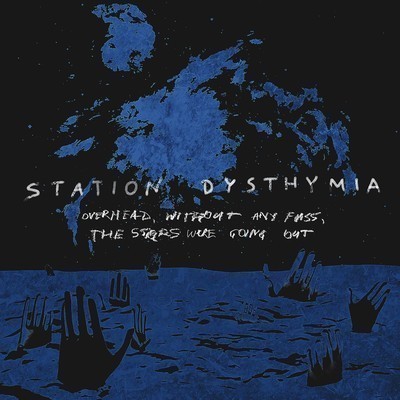The long awaited full length album from Siberian (Russia) funeral doom metal band Station Dysthymia rises this conservative genre to a higher level. Inheriting the album name from the «The Nine Billion Names of God» by Arthur C. Clarke this unpredictable album crafted in traditions of funeral doom inters the area of science fiction combining musical genre with fictional scientific theories. The musicians themselves treat the main idea of the album as perspective of human personal tragedy at the background of the tragedy of human society as a whole which tends to self-destruction. This is the band’s vision of the story of the World’s end: solid guitar sound combined with growl in different emotional tones draw the senses of mankind fallen into apathy and drifting towards self-destruction. The dark soundscapes were created with help of Greg Chandler from Esoteric who performed mastering at his studio in UK, M. Hater and I. Stellarghost from Abstract Spirit appeared as guest musicians.
Tracklist:
1 A Concrete Wall 34:45
2 Ichor 18:30
3 Starlit: A Rude Awakening 9:30
4 Starlit: We Rest At Last 9:40
Artist:
Station Dysthymia
Artist Country:
Russia
Album Year:
2013
Title:
Overhead, Without Any Fuss, The Stars Were Going Out
Genre:
extreme funeral doom
Format:
CD
Type:
CD Album
Package:
Jewel Case
Label:
Solitude Productions
Cat Num:
SP. 074-13
Release Year:
2013
Barcode:
4627080610330
Country Of Manufacture:
Russia
























































